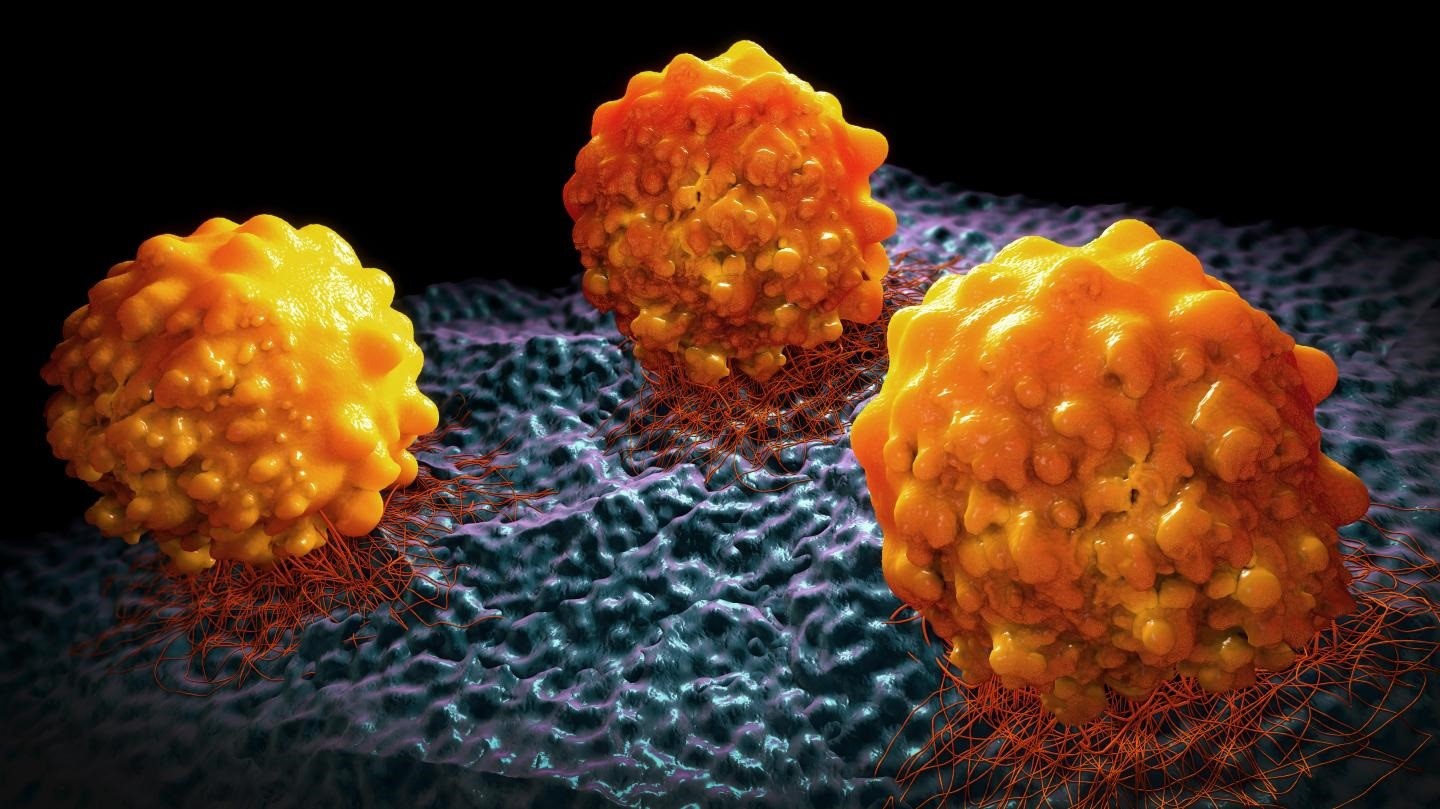Artificial Intelligence Algorithm Identifies High-Risk Individuals for Pancreatic Cancer

Pancreatic cancer, known as the “silent killer,” has one of the lowest survival rates due to its difficult-to-identify symptoms. However, an artificial intelligence algorithm has made a breakthrough by identifying individuals at higher risk of developing pancreatic cancer up to three years before diagnosis. Experts consulted by Infobae explain how this tool works and discuss the impact of an experimental vaccine that has shown promising results.
The Challenge of Pancreatic Cancer
The Pan American Health Organization (PAHO) reports that pancreatic cancer accounts for 7% of all cancers in the Americas. The average risk of developing this disease is approximately 1 in 64, according to the American Cancer Society.
The Role of Artificial Intelligence
Researchers from Harvard Medical School, the University of Copenhagen, and other institutions collaborated to develop an artificial intelligence tool that can detect individuals at higher risk of pancreatic cancer. By analyzing patient records, this tool can accelerate the diagnosis of the disease, which is often detected in advanced stages. Early detection is crucial for effective treatment, especially since certain therapies like immunotherapy cannot be used at advanced stages.
Improving Clinical Decision-Making
Chris Sander, co-principal investigator of the study, emphasizes the importance of identifying individuals at elevated risk of pancreatic cancer. He states that having an artificial intelligence tool focused on high-risk individuals can greatly contribute to improving clinical decision-making. Early detection and timely treatment can significantly improve outcomes and prolong the lives of patients.
A Promising Approach
As pancreatic cancer incidence and mortality rates continue to rise worldwide, early detection becomes even more crucial. Søren Brunak, co-investigator of the study, believes that artificial intelligence-based screening offers an opportunity to change the trajectory of this aggressive disease. By detecting pancreatic cancer early, when chances of success are higher, the burden on patients, families, and the healthcare system can be reduced.
The Power of Artificial Intelligence
To test the algorithm’s ability to detect high-risk individuals, researchers trained it on large datasets from Denmark and the United States, totaling 9 million patient records. The algorithm proved to be more accurate than current estimates of disease incidence, even outperforming genetic sequencing tests. This AI tool has the advantage of being applicable to every patient with available health records, allowing for the evaluation of many high-risk individuals who may be unaware of their predisposition.

A Promising Future
The potential of artificial intelligence in detecting high-risk individuals for pancreatic cancer is significant. By leveraging this technology, healthcare professionals can improve early detection, initiate timely treatment, and ultimately improve outcomes for patients. With the rising incidence of pancreatic cancer, this AI tool offers hope for a brighter future in the fight against this challenging disease.
Breakthrough in Pancreatic Cancer Research

Health professionals are cautious when recommending sophisticated and expensive tests for individuals at high risk of developing pancreatic cancer due to the absence of symptoms and clear indications. However, a recent study published in Nature Medicine has introduced an algorithm that can identify individuals at the highest risk, allowing for targeted testing without unnecessary procedures.
Improving Screening and Diagnostics
According to the researchers, there is a clear need for better screening, more specific tests, and earlier diagnostics for pancreatic cancer. The AI-based approach presented in the study serves as a critical first step in this continuum. By training AI models with rich, high-quality data from nationally and internationally aggregated medical records, accurate results can be obtained.

Progress in Cancer Vaccines
Over the past three decades, scientists have made significant progress in the investigation of cancer vaccines for individuals at high risk. However, they have encountered various barriers. In the case of pancreatic cancer, an experimental personalized messenger RNA vaccine has shown promising results in a Phase I study published in Nature. The vaccine induces a substantial immune response and potentially delays relapse in patients with pancreatic ductal adenocarcinoma, a cancer type with low survival rates.
Understanding the Immune Response
Pancreatic ductal adenocarcinoma is lethal in 88% of patients, but a small percentage manages to overcome the disease. Researchers at the Memorial Sloan Kettering Cancer Center in New York discovered that T lymphocytes, a type of immune cell, showed a significantly higher immune response in these patients. This finding led to the development of a personalized vaccine.

Promising Results and Future Prospects
The personalized messenger RNA vaccine was created using samples from the tumors of patients who underwent surgery. After vaccination, substantial T cell immune responses were observed, indicating the potential of the vaccine to enhance the immune system. Patients with vaccine-expanded T cells also had longer recurrence-free survival compared to those without. While the study shows promising data, further research is needed in Phases II and III to validate its effectiveness.
New Hope for Pancreatic Cancer Patients
Experts in the field emphasize the significance of any progress in pancreatic cancer research. The development of RNA vaccines for cancer, including pancreatic cancer, offers new hope for patients who currently lack effective treatments. However, caution is advised as the complexity and logistics of individualized vaccines present challenges for clinical practice.

According to Dr. Diego Kaen, vice president of the Argentine Association of Clinical Oncology, the study provides new hope for patients, but further research is necessary to translate the findings into concrete treatments. Dr. Federico Esteso, a clinical oncologist, also emphasizes the need for caution and highlights the complexity of individualized vaccines.
Limitations of Mass Existential Practice
Mass existential practice can sometimes be limited in its effectiveness, according to experts. Dr. Smith, a renowned oncologist, explains that while this approach has shown promise in treating certain diseases, it may not be suitable for all patients. He emphasizes that individualized treatment plans are often necessary to address the unique characteristics of each patient’s condition.
Immune Response and Vaccine Development
Dr. Smith further highlights the challenges in vaccine development. He points out that only 50% of the volunteers in a recent study showed an immune response after receiving the vaccine. This indicates the need for further research and development in this area. Dr. Smith acknowledges that finding a treatment that works for all patients is a complex task.
The Intelligent Nature of Tumors
Dr. Smith emphasizes the intelligence of tumors as a disease. He explains that tumors have the ability to create resistance and mechanisms to evade the immune response. This makes it difficult to develop effective treatments. While he finds the progress made in Phase I trials encouraging, he believes it is premature to draw definitive conclusions.
Keep reading:
A recent study has showcased the potential of artificial intelligence (AI) in identifying high-risk individuals for pancreatic cancer. The AI algorithm developed by researchers from Harvard Medical School and the University of Copenhagen analyzed patient records to detect early signs of the disease. Early detection is crucial for effective treatment, and the algorithm proved to be more accurate than current estimates of disease incidence. By identifying high-risk individuals, the AI tool can improve clinical decision-making and ultimately improve outcomes. Additionally, the study highlights promising results from an experimental personalized messenger RNA vaccine for pancreatic cancer. The vaccine induced
What potential benefits could the AI algorithm developed by researchers from Harvard Medical School and the University of Copenhagen bring to the field of pancreatic cancer research and treatment?
The AI algorithm developed by researchers from Harvard Medical School and the University of Copenhagen could bring several potential benefits to the field of pancreatic cancer research and treatment:
1. Early Detection: The AI algorithm could help in the early detection of pancreatic cancer by analyzing medical images and identifying patterns or abnormalities that may be indicative of the disease. This early detection can potentially lead to better treatment outcomes and increased survival rates.
2. Precise Diagnosis: Pancreatic cancer is often difficult to diagnose accurately. The AI algorithm could assist in analyzing various clinical and genetic data to provide a more precise diagnosis, reducing the risk of misdiagnosis or unnecessary procedures.
3. Personalized Treatment: Each patient’s pancreatic cancer is unique, and the AI algorithm can aid in identifying the most effective treatment plan based on a patient’s specific characteristics. This personalized approach may enhance treatment efficacy and minimize side effects.
4. Treatment Monitoring: The AI algorithm can continuously monitor a patient’s response to treatment by analyzing medical images and other relevant data. It can detect changes and provide valuable insights on the effectiveness of the ongoing treatment, allowing for adjustments as needed.
5. Research Advancement: The AI algorithm can analyze vast amounts of data from previous cases, research papers, and clinical trials quickly and accurately. This could facilitate the identification of new patterns, potential risk factors, novel treatment approaches, and contribute to advancing pancreatic cancer research as a whole.
6. Reduced Doctor Workload: By automating certain aspects of analysis and diagnosis, the AI algorithm could reduce the workload on doctors, allowing them to focus more on patient care and treatment planning.
Ultimately, the AI algorithm holds the potential to significantly improve the understanding, management, and outcomes of pancreatic cancer by leveraging advanced computational techniques.








2 comments
This breakthrough in using artificial intelligence to detect pancreatic cancer at an early stage is incredibly promising. It could save countless lives by allowing for earlier intervention and treatment.
[…] intelligence (AI) manages to evolve, the music industry could undergo a complete transformation. A recent study published in Frontiers magazine reveals that an algorithm has achieved a remarkable 97 percent accuracy in […]